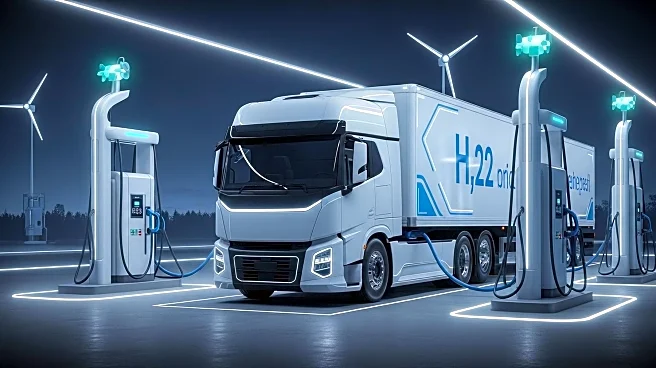What's Happening?
The global freight trucking market is increasingly favoring battery-electric vehicles over hydrogen fuel cell trucks. According to the BloombergNEF 2025 Factbook, nearly 90,000 zero emission trucks were sold in the first half of 2025, with 97% being battery-electric. China leads the market with close to 80,000 electric truck sales, supported by battery supply chains and cost-lowering incentives. In Europe, electric truck sales grew over 50% year-on-year, driven by infrastructure programs and zero emission zones. In contrast, hydrogen truck sales have stalled, with major manufacturers like Daimler delaying hydrogen programs.
Why It's Important?
The shift towards battery-electric trucks in the freight industry marks a significant move towards sustainable transportation solutions. Battery trucks offer higher efficiency and lower operating costs compared to hydrogen fuel cell trucks, which face challenges in infrastructure and energy efficiency. This trend could lead to reduced carbon emissions in the logistics sector, aligning with global climate goals. The dominance of battery trucks also highlights the importance of technological advancements and policy support in driving the transition to cleaner transportation.
What's Next?
As battery-electric trucks continue to gain traction, further investments in charging infrastructure and technological innovations are expected to support their growth. The decline of hydrogen truck programs may lead manufacturers to focus on improving battery technology and expanding electric vehicle offerings. Policymakers may also prioritize electric truck adoption through incentives and infrastructure development, potentially accelerating the transition to zero emission freight solutions.









